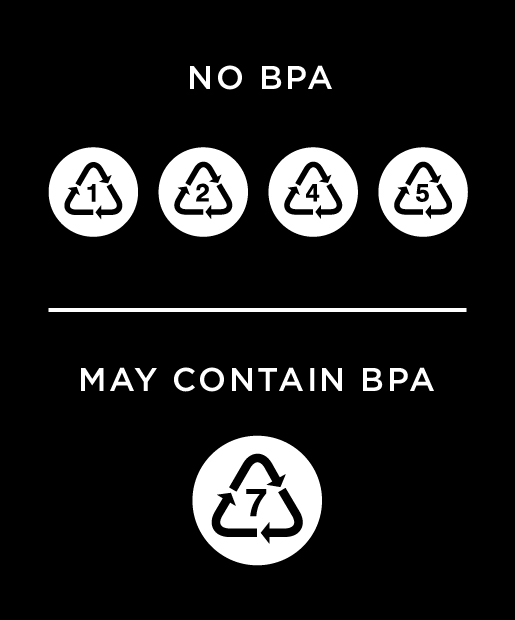The safety and effects of Bisphenol A (BPA), a compound found in certain plastics used in food containers, made news again this week when a new
study published in the journal "PLOS One" found that tween girls (ages 9 to 12) with higher-than-average levels of BPA in their pee were twice as likely to be obese as girls with lower-than-average levels.
Instead of getting all up in the molecular structure and politics of this controversial substance, we'll break it down for you in a different way and tell you exactly what you
do need to know about BPA.
Related:
BPA-Free Water Bottles
BPA is an "endocrine disruptor".
Researchers have found that BPA can mimic estrogen, which means it can have the same impact that estrogen has on the body. Normal levels of estrogen in the body are no big whoop for most women, but imagine what a massive dose might do for, say, a fetus, or an 8-year-old girl, or a pregnant woman. Many experts are concerned about the effects BPA may have on the development of babies' brains and sex organs, and animal studies have linked BPA to an increased risk for breast and prostate cancer.
BPA is used to make hard clear plastic and resins.
Check the bottom of any food or beverage container in your pantry. If you're concerned about the effects of BPA, the products with "7/Other" triangle or "PC" stamp near the recycling symbol are the ones you want to avoid, particularly if you're pregnant or if it's going into your baby's mouth. It means the packaging
may contain Bisphenol A.
Most metal cans are lined with a resin that uses BPA. The hard plastic, called polycarbonate (PC), is used in water bottles, food containers (including some lines of reusable plastic storage containers) and other disposable food packaging.
Heat may allow BPA to leach into foods.
The National Institute of Environmental Health Sciences says putting polycarbonate plastics in the microwave or dishwasher is a no-no because over time, the heat and wear and tear may break down the plastic, causing BPA to leach into foods.
